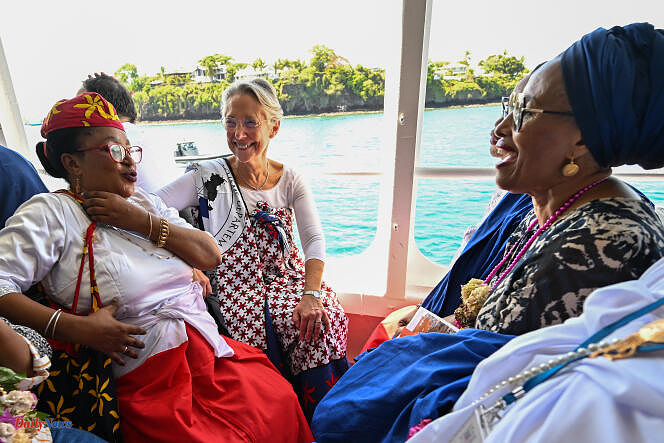The name of Mayotte, 101st French department, has appeared regularly in the columns of Le Monde for several years. This part of France, faced with the consequences of uncontrolled immigration and exponential demographics, growing insecurity and now recurring water shortages, has become a powder keg in the middle of the Indian Ocean. Urgently dispatched from Paris, members of the government took turns on site with budget extensions and lists of promises. The latest visit, that of the Prime Minister, Elisabeth Borne, on December 8, came to try to calm anger. Likewise, journalists from Le Monde follow one another to examine this decay.
For a long time, Mayotte did not exist in Le Monde. Too small and too far away, almost inaccessible. Forgotten, in short. The name of this territory appears for the first time, on March 27, 1954, in a postcard… written from Paris. An article entitled: “The rum of our “isles””. “The tropics, the islands, the rum. Three words that merge in a dazzling light, synonymous with warmth, splendor, generosity; three words which immerse us in a dreamlike atmosphere and evoke for us so many picturesque legends and wonderful stories,” writes an editor who is not shy of clichés.
Mayotte was then cited in the middle of a list of bottled islands, as one of "those countries of luxuriant nature, where in a riot of vegetation mahogany, banana trees, mango trees, bamboos, ferns giants form an extraordinary symphony of greens.” To be enjoyed without moderation.
The path to independence
This exotic parenthesis, in vapors of ylang-ylang, was brief. Very quickly, from the end of the 1950s, Mayotte became an institutional issue for Paris, while France began a phase of decolonization. The archipelago was then integrated into a larger archipelago, the Comoros, which came under the French flag (in the form of a protectorate) in 1886. But very quickly, Mayotte, which its sultan had sold to France to escape the voracity neighboring despots, stands out for its desire to remain within the bosom of Paris.
While the rest of the Comoros archipelago (Grande Comore, Mohéli and Anjouan) embarks on the path to autonomy, then independence, Mayotte expresses its dissent more and more clearly and even requests a status of French department in its own right, like Réunion. Le Monde reports, article after article, on this imbroglio.












